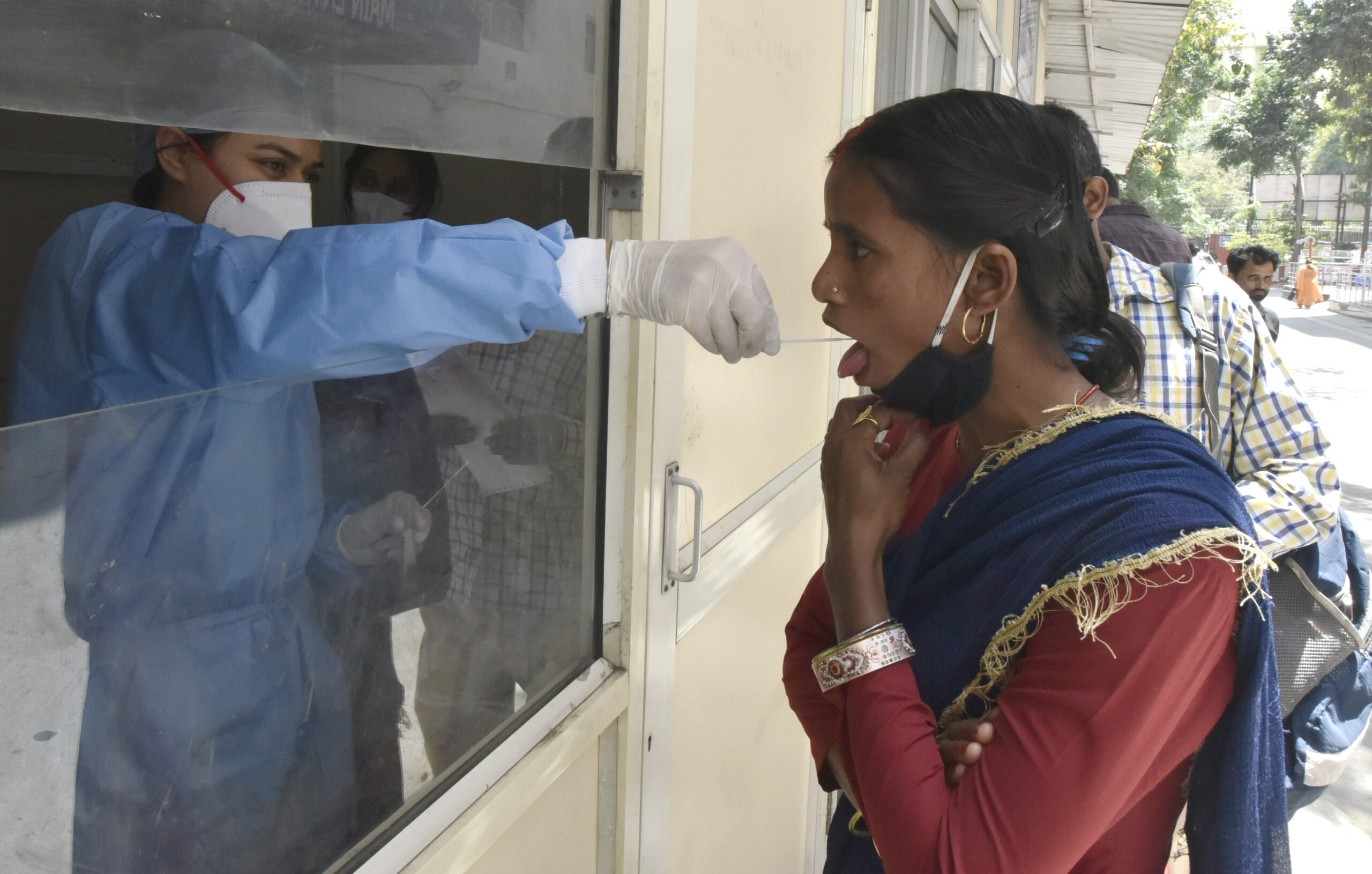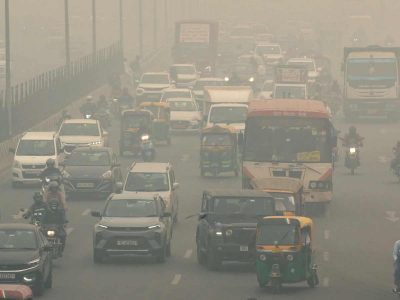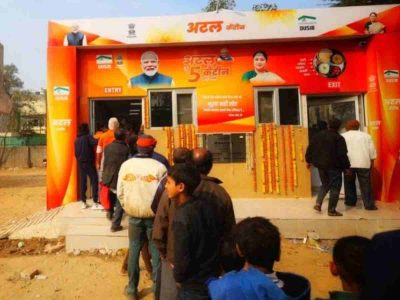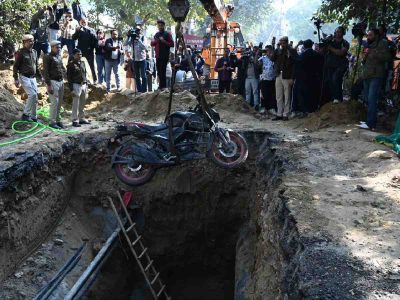India witnessed a rapid rise in Covid cases over the past two weeks with the active caseload breaching 60,000. The situation in the national capital is more dangerous than in the rest of the country. Over the last seven days, the national capital reported the highest number of deaths – 24 — due to Covid-19.
Co-Chairman of Indian Medical Association’s (IMA) Covid Task Force Dr Rajeev Jayadevan explained the latest situation in detail to Patriot.
“Since January last year, there has been a wave of Omicron in India. First, it was the BA-1 variant, then the BA-2 and BA-5 variants. Europe was badly affected by this, but this has not been felt in India much. Then, in October-November, it was the BA-2.75. People feared it but it also did not impact much. The XBB variant, the parent variant of the latest XBB.1.16, became dominant in November 2022. Cases have been rising rapidly after March 2023.”
Jayadevan said that the mixed virus spreads quickly as is evident from the positivity rate.
“This is a “mixed or recombinant virus” (combination of two variants) and spreads quickly. We can imagine its speed: if we had tested 100 patients in a hospital in early March 2023, the possibility of a positive test then was zero. It increased by 10 cases out of 100 in mid-March and reached 42 cases out of 100 in April. But the good thing is that there is no overflow situation in the hospitals yet. Only a few people have been admitted directly due to COVID. Currently the situation of the country is good because the vaccination rate was very high. Percentage of the first dose vaccination is well above 95%, second dose above 90%.”
Jayadevan added further that there were some limitations with the latest Kerala government data on TPR. IMA’s COVID task force has been publishing pertinent data.
“The official TPR data is not available in Kerala in the recent months. However our dedicated consortium of doctors has been closely observing Covid since the last three years. We also network with experts all over the world who appreciate our observations. This is because we do it on the basis of ground reports. So, it is our observation that this variant which was very slow to pick up in March, has become very fast and widespread in April. It has infected all categories of people, such as past infected, or even the vaccinated and boosted. I had said earlier that multiple waves of Covid wave will hit the country. Fortunately, we are not seeing danger signals yet.”
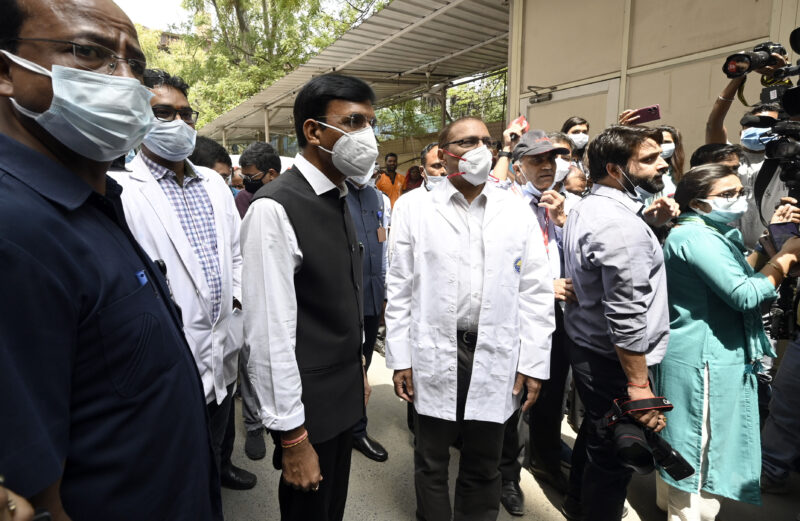
He appealed to the government to do a regular surveillance on Covid especially during the ongoing wave.
“The government should do a regular surveillance. The current rise in cases is from is a sub-variant of Omicron.
He spelt out two ways of surveillance.
“There are two types of surveillance. One is Severe Acute Respiratory Infection (SARI), in which persons who are affected by cold, fever, or cough is tested. Second, if there is any cluster noted in the testing, genomic surveillance should then be done. Tests and genomic surveillance are both different. Tests only show that the virus is positive or negative, while genomic surveillance is a special test which is conducted only in national labs to find out the genome of the virus and ascertain if the virus is XBB 1.16 or 1.5 etc,” said Jayadevan.
“Besides this, we should follow government’s recommendations on Covid appropriate behaviour, such as social distancing, indoor masks, avoid handshakes among others. In fact, I stopped shaking hands while at hospital many, many years ago because it increases cross-infection risk,” advises Jayadevan.
“There is no need to panic; but as to when an all-new variant will come, we don’t know. When the Omicron variant was detected in South Africa in November 2021, it took only one-and-half months to spread all over the world. So, this is a very powerful virus. Don’t take it lightly. We don’t know if and when it will change its behaviour in the future.
Unfortunately, unless we monitor closely, we will not be able to react on time. Covid surveillance is like the ‘fire safety’ system in a building. If there is no safety system, then fire will spread quickly and cannot be put out.
“People say that Corona has gone. But Corona is still around, reported numbers are low partly because testing rate has dropped. That is why, continuous genomic surveillance is important and its data should also be published. By this, we can know what type of variant is in the country and what is the exact behaviour,” concluded Jayadevan.
The doctors are also witnessing changing Covid symptoms in kids as variant XBB1.16 cases continue to surge in the country. Even more worrisome is that this variant is attacking the eyes and kids are at risk along with the adults.
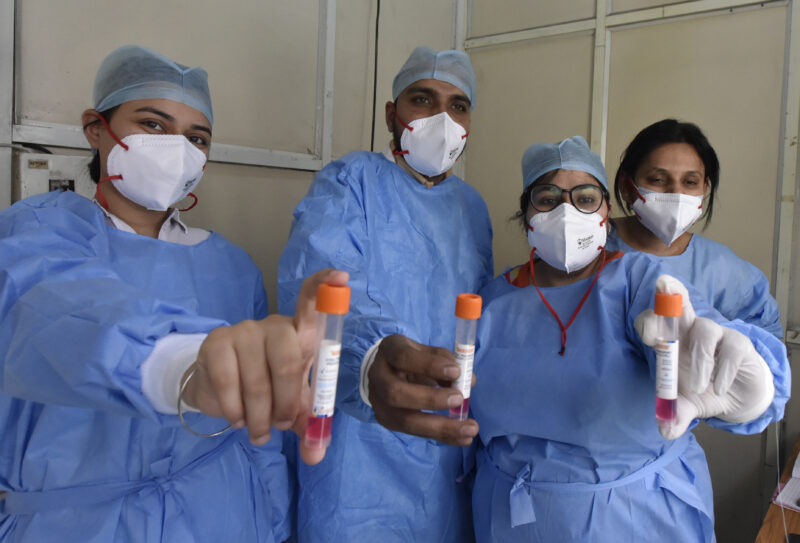
/ Photo: Getty
Dr Rajeev Sood, member of National Medical Council (NMC) said, “The second wave was very severe. Lungs were affected and lack of oxygen was the major problem. But in this wave, the symptoms are mostly mild. This is cluster infection — if there is one person affected then the possibility of people close to him getting affected is also high. This new variant named arcturus (XBB.1.16) has two new features — one is eye infection and the other is diarrhoea. The other thing is that this is infecting children who are under 12 years of age. The old Covid strain affected the children less. Also, patients are suffering from high fever and cough, irritation in throat, pain in muscles among other issues.”
Dr Sood said that the effect on those who have got vaccinated is mild.
“If you have got vaccinated, the effect of Covid will be mild, and if you are not vaccinated, the chance of severe Covid is more. This is a ‘variant under monitoring’ so is less harmful. The ‘variant of concern’ is the more harmful variant.”
Sood said that although this variant rises quickly, it comes down equally quickly. He also added that the testing rate is very low.
“We are testing only the people who are suffering from fever, and not those who were in touch with him. So, the testing rate is low. Another thing is self-testing. Sales of testing kits have increased in the market by 15%. They are testing but not counting data. So, nobody knows the actual cases. This variant also bypasses immunity. The person who has been vaccinated is also affected by this new variant. So, the spread is high and could rise further but the severity rate is low.”
Dr Sahajanand Singh, a former president of IMA, said, “This Covid is not as much dangerous but it is definitely dangerous to children. Kidney or heart patients are also impacted. We should avoid taking antibiotics because by doing this, the resistance of the body will decrease, which can be harmful. Apart from this, Covid appropriate behaviour should be in use and there is no need to panic.”
Dr Karan Juneja, the national secretary of IMA, has asked people to stay hydrated and avoid social gatherings.
“In this season, if anyone is suffering from fever, cough or cold, then he is more likely to be infected with a virus. People should stay hydrated and avoid social gatherings and take precautions. Otherwise, the situation could worsen.”
According to the data shared by the city government’s health department, the positivity rate has jumped to 32.25% at the start of this week.
The number of Covid-19 cases in Delhi had dropped to zero on January 16 for the first time since the outbreak of the pandemic. The Delhi government is now working on fresh guidelines for schools as several educational institutions and hospitals have reintroduced mask mandates and social distancing protocols.

